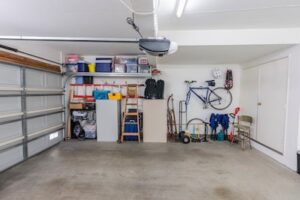A Guide to Junk Removal for Home, Garage, and Outdoors
Clutter can accumulate quickly, leaving your home, garage, and outdoor spaces feeling cramped and disorganized. Fortunately, with a little effort and a systematic approach, you can effectively remove junk and create a more inviting living environment. So, how can you clear the clutter and get rid of junk in your home, garage, and outdoors?
While in this guide there are many steps to make clearing the clutter and removing junk in your home, garage, and outdoor space, some key steps to do include:
- identifying the areas with the most junk and clutter
- making a plan to sort and organize what you want to keep and throw away
- clear the space throughout your home and garage and then the outdoors
- emptying and throwing away the junk
So, now that you have an idea of some important things to do, let’s jump into the full guide. In this comprehensive guide, we’ll explore simple and easy-to-follow steps for efficient junk removal in various areas of your home. Let’s get started!

Tackling Home Clutter
– Identify the Clutter Hotspots
Before diving into the decluttering process, identify the main areas in your home where clutter tends to accumulate. Common hotspots include closets, basements, attics, and spare rooms. Make a list of these areas, as this will help you prioritize your efforts and stay organized throughout the process.
– Create a Decluttering Plan
Set aside specific dates and times for decluttering, focusing on one area at a time. Break down the task into smaller, manageable parts, so it doesn’t feel overwhelming. For instance, if you’re tackling your closet, start by sorting through your clothes, then move on to shoes and accessories.
– Sort and Categorize
Begin by sorting items into categories, such as clothing, books, toys, and electronics. This will make it easier to determine what to keep, donate, or discard. Create four piles: Keep, Donate, Sell, and Trash.
– 1. Keep
These are the things that you will still be using in your home or keeping for a future date. Put all of these items in a safe place, like a storage closet or cabinet.
– 2. Sell
Selling items can be a great way to make some extra money while also decluttering your home. Items that are still in good condition and have resale value such as furniture, electronics, and clothing should all go into the sell pile.
– 3. Donate
If you don’t want to sell items, consider donating them instead. Donated items can be used by others in need and help the environment. Any gently used clothing, furniture or household supplies can be donated to a local charity or thrift store.
– 4. Trash
Anything that is broken or no longer of use should be thrown away. Make sure to dispose of trash items properly and recycle what you can.
A key part of this step is to be honest with yourself when assessing each item. If you haven’t used it in over a year and it doesn’t hold significant sentimental value, consider donating, selling, or trashing it. Remember that less clutter means more space and freedom.

– Organize and Store
Once you’ve decided what to keep, organize and store items in a way that makes them easily accessible. Use labeled boxes, bins, and shelves to keep everything in its designated place. Additionally, consider investing in furniture with built-in storage, such as a bed frame with drawers or an ottoman with hidden compartments.
– Establish a Maintenance Routine
To keep your home clutter-free, establish a regular maintenance routine. This may involve setting aside time each week to tidy up, putting things away immediately after use, and conducting a thorough decluttering session every few months.
Garage Junk Removal
– Empty the Space
Begin by completely emptying the garage. This might seem like a daunting task, but it’s the best way to see what you have and create a clean slate.
– Sort and Categorize
As with home clutter, sort items into categories, such as tools, gardening supplies, sports equipment, and holiday decorations. Create the same four piles as before: Keep, Donate, Sell, and Trash. Also remember the importance of having a clean space and how if an item is not sentimental or used that often, it may be best to get to sell, donate, or throw it away.
– Assess Your Storage Options
Evaluate your current garage storage options and consider investing in additional solutions, such as wall-mounted pegboards, shelving units, and storage cabinets. These can help maximize your space and keep your garage organized.
– Reassemble and Organize
Put everything back into the garage in an organized manner, using your new storage solutions. Make sure frequently used items are easily accessible, while seasonal or rarely used items are stored away.
– Implement a Tool Maintenance Schedule
A well-maintained garage includes not only an organized space but also well-maintained tools. Create a schedule to routinely check, clean, and maintain your tools, ensuring they are in proper working order and easily accessible.
– Set Up a Donation Station
Designate a specific area in your garage for items that can be donated or sold later. This will make it easier to keep track of items you no longer need and prevent them from becoming clutter once again. Regularly schedule donation pick-ups or drop-offs to ensure these items don’t linger in your garage.

Outdoor Junk Removal
– Assess Your Outdoor Space
Walk around your property and make a list of all the cluttered areas, such as garden sheds, patios, and side yards. Note any large or hazardous items that may require special disposal methods.
– Gather Your Supplies
For outdoor junk removal, you’ll need sturdy gloves, garbage bags, a rake, a wheelbarrow, and possibly a truck or trailer for hauling away large items. Renting a dumpster may also be necessary for significant cleanups.
– Sort and Dispose
Sort outdoor clutter into the same four piles as before: Keep, Donate, Sell, and Trash. Dispose of hazardous materials, such as paint or chemicals, according to local regulations. Contact your local waste management facility for guidance.
– Tidy Up and Maintain
Once you’ve removed the outdoor clutter, take the time to tidy up your garden, trim overgrown plants, and sweep your patio or deck. Establish a regular maintenance routine to keep your outdoor spaces looking neat and inviting.
– Create Functional Outdoor Zones
To maintain an organized outdoor space, designate specific areas for various activities, such as gardening, entertainment, and relaxation. This will help you keep items in their designated zones and prevent clutter from accumulating.
– Optimize Outdoor Storage
Invest in durable outdoor storage solutions, such as weatherproof deck boxes or sheds, to store items like gardening tools, cushions, and pool equipment. Properly storing these items will protect them from the elements and keep your outdoor spaces clutter-free.
Conclusion
Clearing the clutter from your home, garage, and outdoor spaces can be a liberating experience and increase your well-being. By following this simple guide, you can transform your living environment into a more organized, functional, and aesthetically pleasing space. Remember that decluttering is an ongoing process, so be sure to regularly assess your belongings and maintain a clutter-free lifestyle. With a little time and effort, you’ll enjoy the benefits of a well-organized and inviting home, both indoors and out. Happy decluttering!
